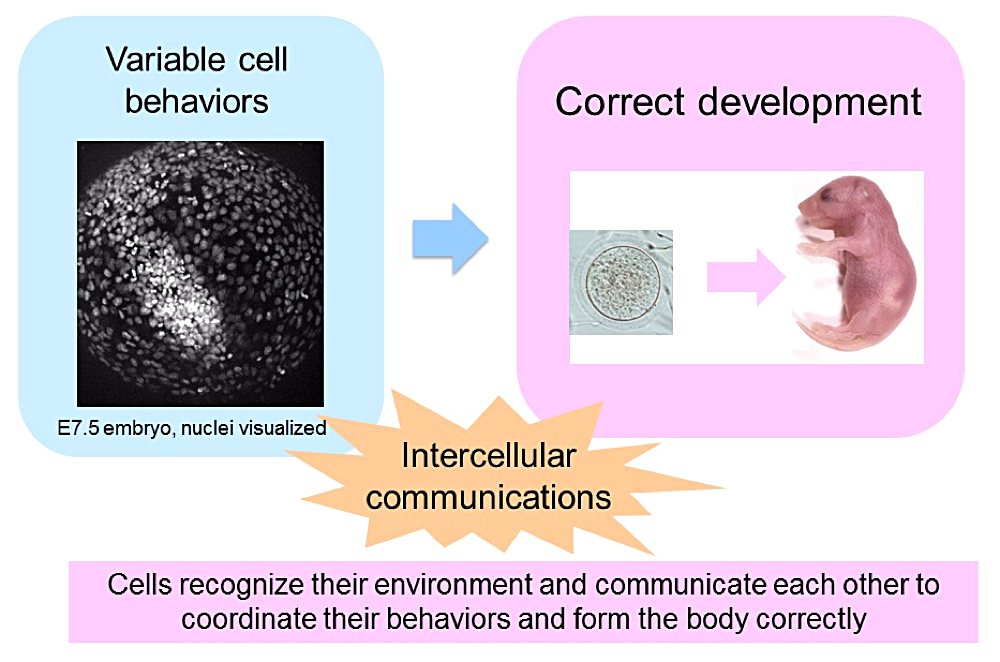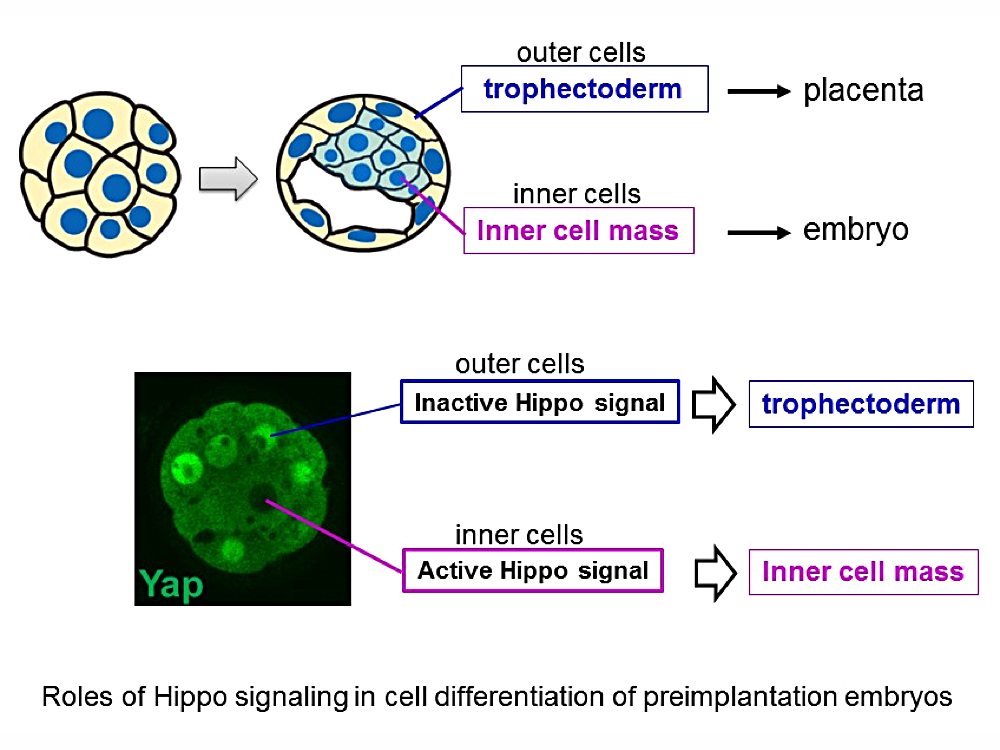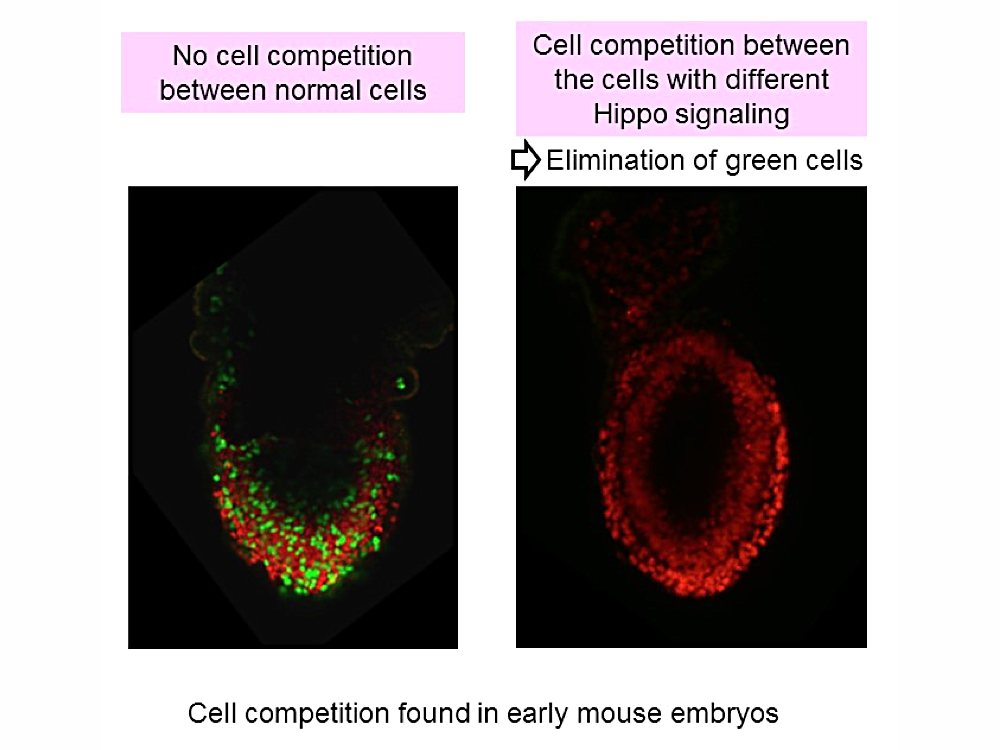Research
Correctness is a very important feature of the development. Developmental errors cause various abnormalities. During development, cells undergo dynamic behaviors including division, differentiation, death, migration etc., and groups of cells create organs and other complex structures of a body. Although the behaviors and conditions of each cell in developing embryos are highly variable, the groups of cells create a correct body. This correctness is supported by the intercellular communications, which recognize the conditions of the environment and the neighboring cells and coordinate cellular behaviors. We use mouse embryos as a model system, and study the intercellular communications involving the Hippo signaling pathway and the cell competition. By analyzing the mechanisms and roles of such intercellular communications, we will reveal the mechanisms, which support correct development.
We perform following two major research projects:

Intercellular communications that regulate cell differentiation in preimplantation embryos
During preimplantation development, mouse embryos undergo cell divisions and form a structure called blastocyst, which consists of more than 100 cells at the time of implantation to the uterus. In preimplantation embryos, allocation of the cells formed by cell divisions are not predetermined, but the blastocysts always have two types of cells in correct positions: the trophectoderm (the cells which will form placenta) and the inner cell mass (the cells which will form embryo proper) at the outer and inner positions, respectively. We have found that the Hippo signaling pathway plays central roles in regulation of the cell differentiation, and that the cells recognize their positions within the embryo through adhesions with their neighbors, and control the Hippo signaling. These findings are described in the textbook, “Developmental Biology,” written by Scott Gilbert. In previous studies, we assumed the cell positions are fixed, but in actual embryos, the cell positions are changing dynamically. We will study how the Hippo signaling is regulated in dynamically moving cell population, and reveal the mechanisms which support correct development.

Regulation of variation of cells by intercellular communications like cell competition
Intercellular communications actively controls variation of cellular conditions within a cell population. We have found that, in an embryo derived cell line, in the presence of the cells with different Hippo activities, the cells with relatively higher transcriptional activity become winners, and eliminate the cells with relatively lower transcriptional activities. Such intercellular communication which recognizes the status of their neighbors is known as cell competition. More recently, we found that similar cell competition also takes place in mouse embryos, and plays essential roles in correct development.

In spite of the importance of intercellular communications in development, the underlying mechanisms i.e., how the cells recognize conditions of their neighbors, compare them with their own conditions, and control the neighbors’ or their own behaviors, remain mostly unknown. Our studies revealed that the Hippo signaling pathway plays a key role. By using the Hippo signaling pathway as a clue, we will reveal the mechanisms and roles of intercellular communications, and will address the big question of the correctness of development.